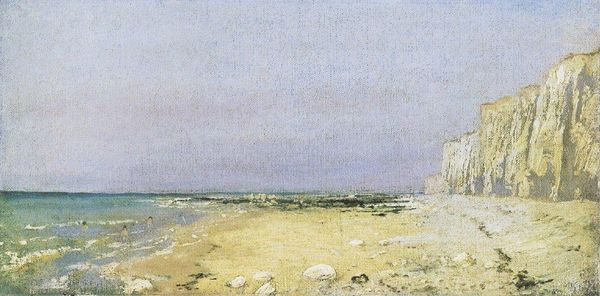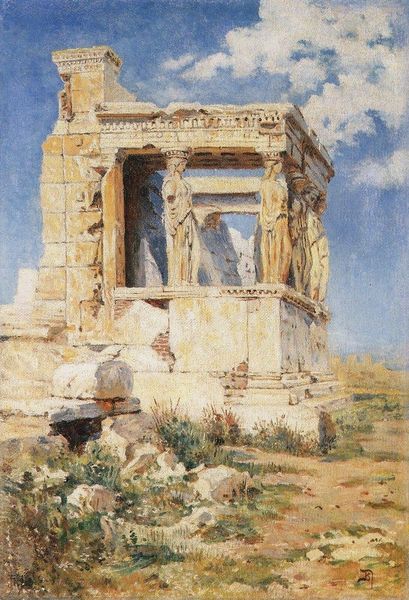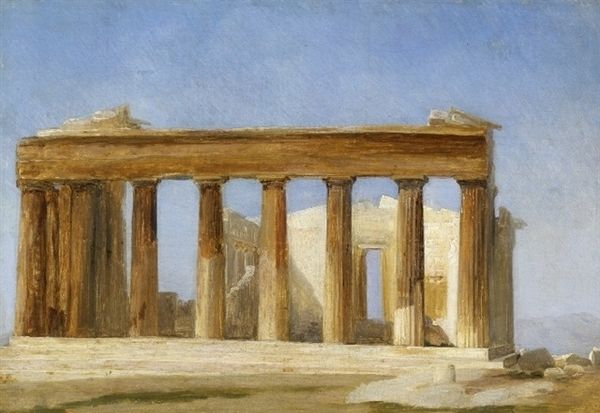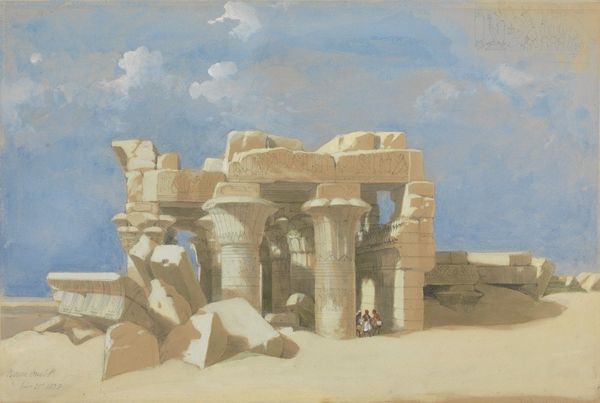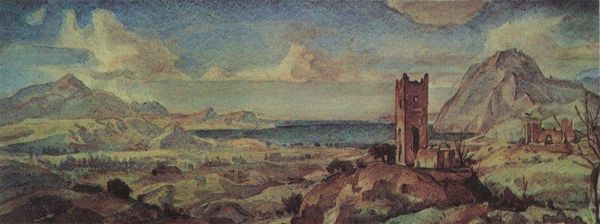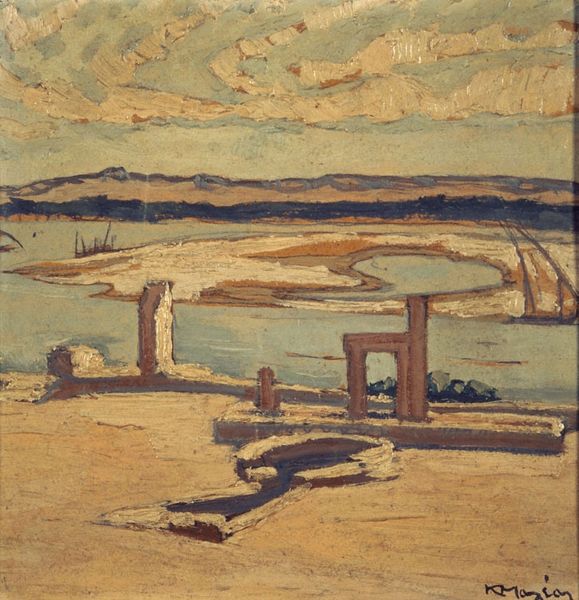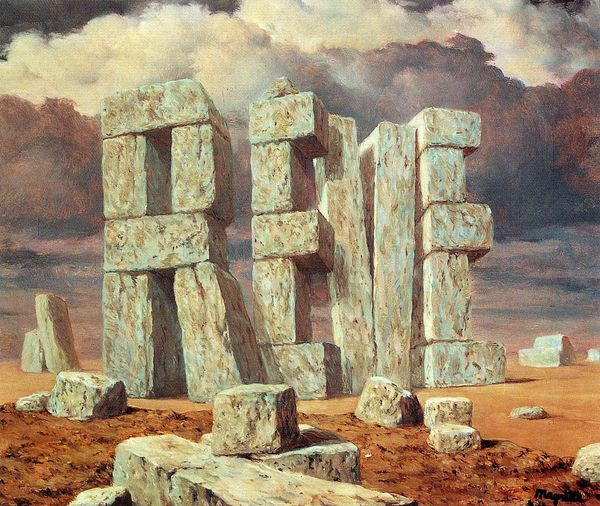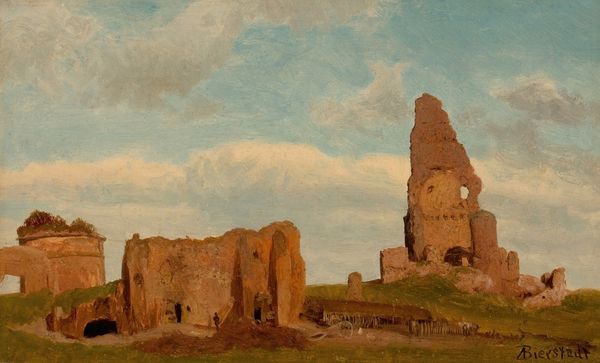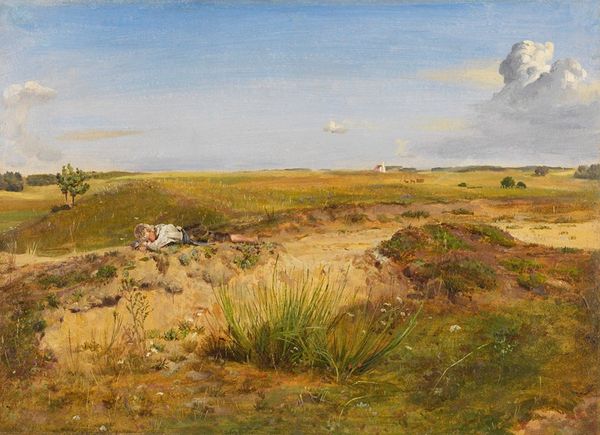
painting, oil-paint
#
painting
#
oil-paint
#
greek-and-roman-art
#
landscape
#
classical-realism
#
form
#
oil painting
#
cityscape
#
history-painting
#
academic-art
#
realism
Copyright: Public domain
Frederic Edwin Church painted this view of broken columns with oil on paper. The ruins of the Parthenon, once symbols of Athenian glory and the rational ideals of classical antiquity, stand here fragmented. Consider the column itself: a motif reaching back to the temples of ancient Egypt, pillars of strength and order. Yet here, they are broken. This is not merely a scene of architectural decay. It speaks to a more profound sense of loss and the impermanence of human achievement. The crumbling column has reappeared throughout art history, notably during the Renaissance, where it symbolised the decline of empires. Think of Piranesi's etchings of Roman ruins, each a testament to the inevitable decay of earthly power. Here, Church may be tapping into a collective memory of vanished grandeur. It evokes a sense of melancholy that resonates deep within us. Note how even in ruin, the columns retain a solemn beauty. The emotional pull of this image lies in its ability to evoke both nostalgia and a poignant awareness of time's relentless passage. The motif of the broken column cycles through time, a constant reminder of what once was, and a reflection on our own fleeting existence.
Comments
No comments
Be the first to comment and join the conversation on the ultimate creative platform.

